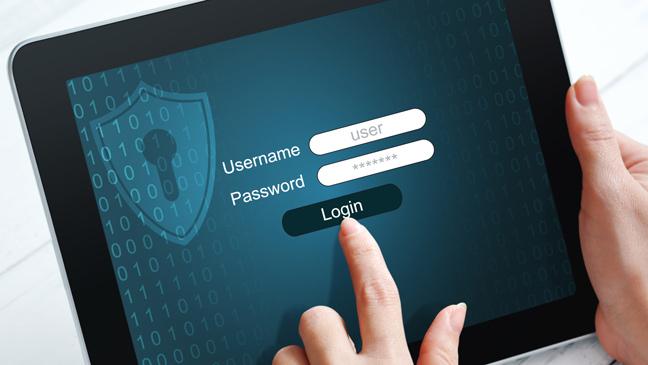With the advacement of technology happening so quickly, it’s no surprise that malware in all its forms is also advancing. As we shift more of our lives online, it is imperative to keep our online-security in tip-top shape to ensure it remains out of the hands of virtual pickpockets.
Create strong passwords
An easy step to take in the quest to secure your online information is to learn how to create strong passwords for your various accounts. Using birth dates or maiden names is an all too common mistake when it comes to cyber-security. While people believe this information to be personal, it is far too easy for cyber-criminals to find this information online.
The longer the password, the better, as it makes it more difficult to use brute force to reveal your password. Forget about one word passwords, try using a passphrase. “Let them eat cake,” or, better yet “Let th3m e@t cake!” is a great passphrase that would be difficult to crack using a brute force algorithm.
Not sure how strong your password is? Try playing with a password strength checker, such as howsecureismypassword.net, to see how length of password and use of numbers of symbols makes a difference and get a feel for how to build a strong password. Don’t just type in your real passwords – always play it safe with such important information!
Create multiple passwords
Don’t be naïve; even the most secure websites can be hacked. The United States Department of Justice, The United States Internal Revenue Service, Yahoo!, LinkedIn, and multiple health providers are only a few among the many major cyber-breaches revealed in the past few years.
Among the information stolen this past year were e-mail usernames and passwords, credit card information, confidential medical information, and Social Security numbers.
While it is impossible to avoid cyber-risks altogether, unless you choose to go off the grid completely, one of the best ways to protect your information is to use different passwords for each site you use. If your LinkedIn account is hacked, you don’t want the hackers to be able to use your password from LinkedIn to unlock the rest of your social media sites, your financial information, and your work accounts.
If it becomes difficult to remember all your passwords, consider using password manager program. This is a secure program on your computer that organizes all of your passwords so the only one you need to remember is the one to unlock the program itself.
Use common sense
- Don’t share your password.
- Don’t open sensitive accounts, such as your bank account, on public computers.
- Don’t click on links that look fishy.
- Don’t share personal information with people (or cyber-profiles) you don’t know.
- Do back up your files on a regular basis in case of breaches (or other technological malfunctions).
- Do change your password if you think your account may have been breached or is vulnerable to being breached.
- Do use anti-virus software (but don’t rely on it completely).
- Do use Two Factor Authentication, such as receiving authentication codes via SMS before completing online credit card transactions, whenever possible.
The advances made in the world of technology are amazing to see, but it’s too easy to forget that for every account you open, there’s a hacker trying to steal that information and make a quick profit. Stay safe online by utilizing safe password practices.
